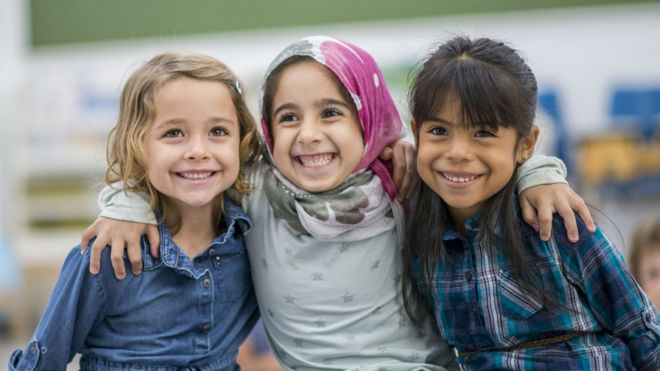Pants-of-dog wrote:So not only are the journalists not telling the truth, but the academics are also not telling the truth about the journalists.
The academics probably truly believe we should regard people who migrate across the continent to get to the most lenient and prosperous country as "one of us" and every single European country's press should write stories to that effect, even if these people are just passing through. This is a good example of a progressive sensibility and such stories are exactly what I mean when I refer to stories with progressive context. The same is true for their complaint that there weren't enough emotional stories about individual migrants - as mentioned earlier, there were plenty of these by the public broadcasters in Germany which have a much wider reach and weren't included in their analysis. Also, let's be clear that what they mean by this is sympathetic stories, ideally about the journey from their war-torn home countries to the safe country they would later leave for Europe to emphasise that they are refugees and not economic migrants. Note what they say in the second report you linked about the conflation of migrants and refugees:
In this report, we refer to the significant numbers of people arriving to Europe from conflict-torn areas in 2015-16 as the “refugee/migration crisis”. We use the two concepts together, as they have become widely and interchangeably adopted by the media and policy makers to refer to the recent arrivals of almost a million people in Europe. At the same time, we remain aware that the conflation of terms (“migrant” and “refugee”) carries profound and dangerous consequences for the quality of press coverage.
I hope it's clear that they mean calling them migrants "carries profound and dangerous consequences" and the authors have thus established their progressive credentials. That's, again, exactly my point, so thanks for this.
Further, their criticism that the press has "framed" (their word) the events as a crisis is patently ridiculous - it was a crisis by any objective measure and hence ought to be reported as one. They also explain:
The hypothesis driving the analysis is that narratives of the coverage are contained within an axis that has militarization (control of borders and security of Europe or the nation) on one extreme and humanitarianism (compassion and care of new arrivals) on the other.
Compassion and care as one extreme and militarisation as the other. Yeah, there's no progressive bias here at all.

Of course, they are also oblivious to or gloss over issues such as the fact that Eastern Germany was portrayed as "Dunkeldeutschland" (literally Dark Germany) and any opposition was portrayed negatively, at the mild end as a lack of compassion right up to references to Nazis and fascists (including the Austrian left-wing chancellor at the time invoking the Nazis with respect to Orban). But I suspect, given their disposition, they would be more inclined to agree with these portrayals anyway.
I'm done with this "analysis" by the media and communications department of the LSE (as if I needed to know anything apart from this bit of information from the first page).
Pants-of-dog wrote:Sorry, @Kaiserschmarrn. I am not convinced that journalists are deliberately trying to confuse refugees and economic migrants as part of an agenda to bring about a more progressive society.
Please see above: calling people migrants carries profound and dangerous consequences for the quality of press coverage.
Pants-of-dog wrote:When we look at the evidence, it seems that media coverage is diverse, with a significant portion of the media coverage showing the refugees and migrants as bad people.
When confronted by this evidence, you then claim that the analyses are tainted with the same bias as the journalists, and seem to argue that the academics are also doing it as part of a vague plan to usher in a more progressive society, even though they (like the journalists) do not personally benefit in any way.
This argument contradicts the existing evidence, assumes impractical motives on the part of the active agents, and requires either an actual conspiracy or minimally having a majority of people in two fields acting in concert according to some vague ideological framework.
No conspiracy is required and acting in concert comes about through the similarity in mindset, especially but not only the fear of "exploitation" by the right who, as I have already pointed out, are also usually assumed to "act in concert" on matters such as this. Objectivity and dispassionate reporting are, to progressives, problematic if not dangerous, e.g. the fact that the migrants were in fact intruders, as they crossed borders without permission, at least up until Merkel declared "refugees welcome" to the world, but even later they often ignored directions of border guards to wait and be processed as happened at the Austrian border. Concerns about borders and security is right at the centre of society as far as the general population is concerned. It should be the default and considered normal that these issues get due attention rather than juxtaposing them with compassion and regarding them as negative and an extreme.
Hence in 2015 and 2016, the vast majority of reporting ranged from normal to "ecstatic humanitarianism" which progressives academics interpret as from very bad to very good. The German media engaged in a little bit of introspection in 2016 with respect to their humanitarian ecstasy, probably told themselves, as they always do, that it's okay because they meant well and fell back to their baseline which is somewhere in between.













 - By annatar1914
- By annatar1914 - By Tainari88
- By Tainari88